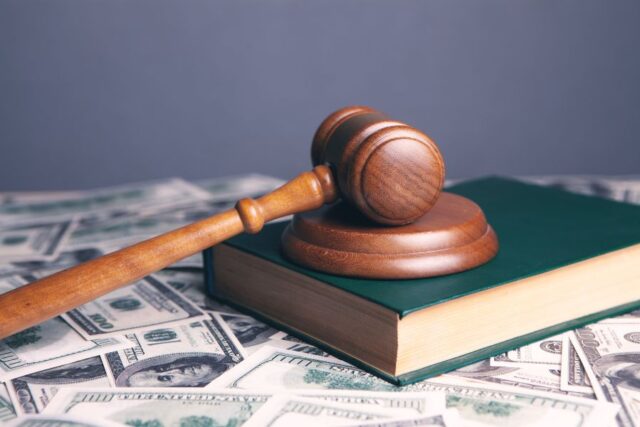The devastating wildfires that swept through Maui in August 2023 have left behind a trail of destruction, claiming over 100 lives. As investigations continue to unfold, one entity that has come under intense scrutiny is Hawaiian Electric, the state’s primary power utility company.
Multiple class action lawsuits have been filed against Hawaiian Electric. According to CNBC, plaintiffs allege that negligence on the part of the utility company contributed to the tragedy. These lawsuits have the potential to reshape the future for both victims seeking justice and the utility company itself.
In this article, we will delve into the strategies that lawyers are employing to build strong cases in the Maui wildfire lawsuit.
Exploring Liability Theories
In the aftermath of the devastating Maui wildfires, attorneys representing victims are closely examining liability theories to build a compelling case. One key theory being explored is “inverse condemnation.”
This legal principle allows property owners to sue a government entity, or in this case, a quasi-governmental utility company, for damages. According to inversecondemnation.com, Hawaii has not yet adopted California’s model of inverse condemnation responsibility for wildfires. As a result, this will be a first-of-its-kind case in Hawaii.
To establish liability using this theory, attorneys need to demonstrate that Hawaiian Electric operated in a manner similar to a governmental body. If successful, this approach could simplify the process of seeking compensation for victims without having to prove the utility’s recklessness.
Understanding Wrongful Death Claims
According to JD Supra, the Maui wildfires tragically resulted in over 100 fatalities. This has led to numerous wrongful death claims. Attorneys are focusing on building these cases by establishing that Hawaiian Electric’s actions or negligence played a role in causing these deaths.
Wrongful death claims encompass both economic and non-economic damages. Economic damages may include medical bills incurred before the victims’ deaths, lost earnings, and the loss of household services.
Non-economic damages seek compensation for the emotional pain and suffering endured by the victims’ families. Notably, Hawaii does not have a cap on the amount of damages awarded in wrongful death claims. This could significantly impact settlement amounts.
Gathering Evidence of Negligence
In the Maui wildfire lawsuits against Hawaiian Electric, the process of gathering evidence of negligence is of paramount importance. Attorneys are leaving no stone unturned in their quest to establish that the company bears responsibility for the disaster.
This approach involves scouring through a plethora of documents, including internal company records and communications, to find evidence of negligence. Eyewitness accounts from the affected communities are also being carefully scrutinized as they provide critical real-time perspectives on the events.
Examining Prior Lawsuits Against PG&E
Drawing insights from past lawsuits against Pacific Gas & Electric (PG&E), attorneys are fortifying their strategies in the Maui wildfire lawsuits. These earlier cases against PG&E, which faced accusations akin to those now directed at Hawaiian Electric, serve as a source of guidance.
They provide a blueprint for navigating the complex legal terrain and highlight tactics that proved effective in securing substantial settlements. By learning from these precedents, attorneys are better equipped to anticipate challenges, evaluate potential pitfalls, and adapt their legal approach. This helps maximize the chances of success in securing justice and compensation for the victims of the Maui wildfires.
Demonstrating Deliberate Refusal to Modernize
Hawaiian Electric lawsuits center on the alleged deliberate neglect of power infrastructure, which is especially troubling in light of the Hawaii fires today. Attorneys are working diligently to substantiate this crucial allegation by meticulously examining the electric company’s historical actions and decisions.
The company allegedly knew the risks of its aging infrastructure but chose not to invest in essential upgrades. According to TruLaw, attorneys aim to underscore the utility’s alleged negligence by showcasing that Hawaiian Electric opted to prioritize cost-cutting over safety.
Seeking Compensation for Economic Damages
Within the Maui wildfire lawsuits, the pursuit of compensation for economic damages takes center stage. Attorneys are engaging in a thorough process of quantifying these financial losses with precision and thoroughness.
Economic damages encompass a broad spectrum. This includes medical expenses, lost earnings, future income potential, and the assessment of property damage.
These calculations require not only financial acumen but also a profound understanding of the individual circumstances of each victim and their families. By diligently pursuing fair compensation for these economic damages, attorneys aim to provide essential support to those affected by the wildfires.
Preparing for a Potentially Prolonged Legal Battle
In the pursuit of justice, attorneys are bracing themselves for a legal battle that may span several years. This preparedness involves assembling a formidable legal team of experts in wildfire litigation, including seasoned trial attorneys, investigators, and forensic experts.
It also necessitates the development of a comprehensive legal strategy tailored to the unique complexities of the case. Attorneys are gearing up for the likelihood of legal challenges along the way, demonstrating patience, resilience, and unwavering dedication. As the legal battle unfolds, their commitment to securing justice and holding Hawaiian Electric accountable remains resolute.
Ending Note
The Maui wildfire lawsuits against Hawaiian Electric are marked by innovative legal strategies and a determined pursuit of justice for victims. Attorneys are exploring uncharted legal territory with theories like inverse condemnation while addressing the heart-wrenching wrongful death claims.
Learning from past cases against utility companies, they’re navigating complexities with seasoned expertise. The case underscores the grave consequences of neglecting vital infrastructure and highlights the need for responsible corporate actions.
As attorneys meticulously document evidence of negligence and quantify economic damages, they are prepared for a protracted legal battle. Their unwavering commitment to securing justice serves as a beacon of hope for those affected by the tragedy.














